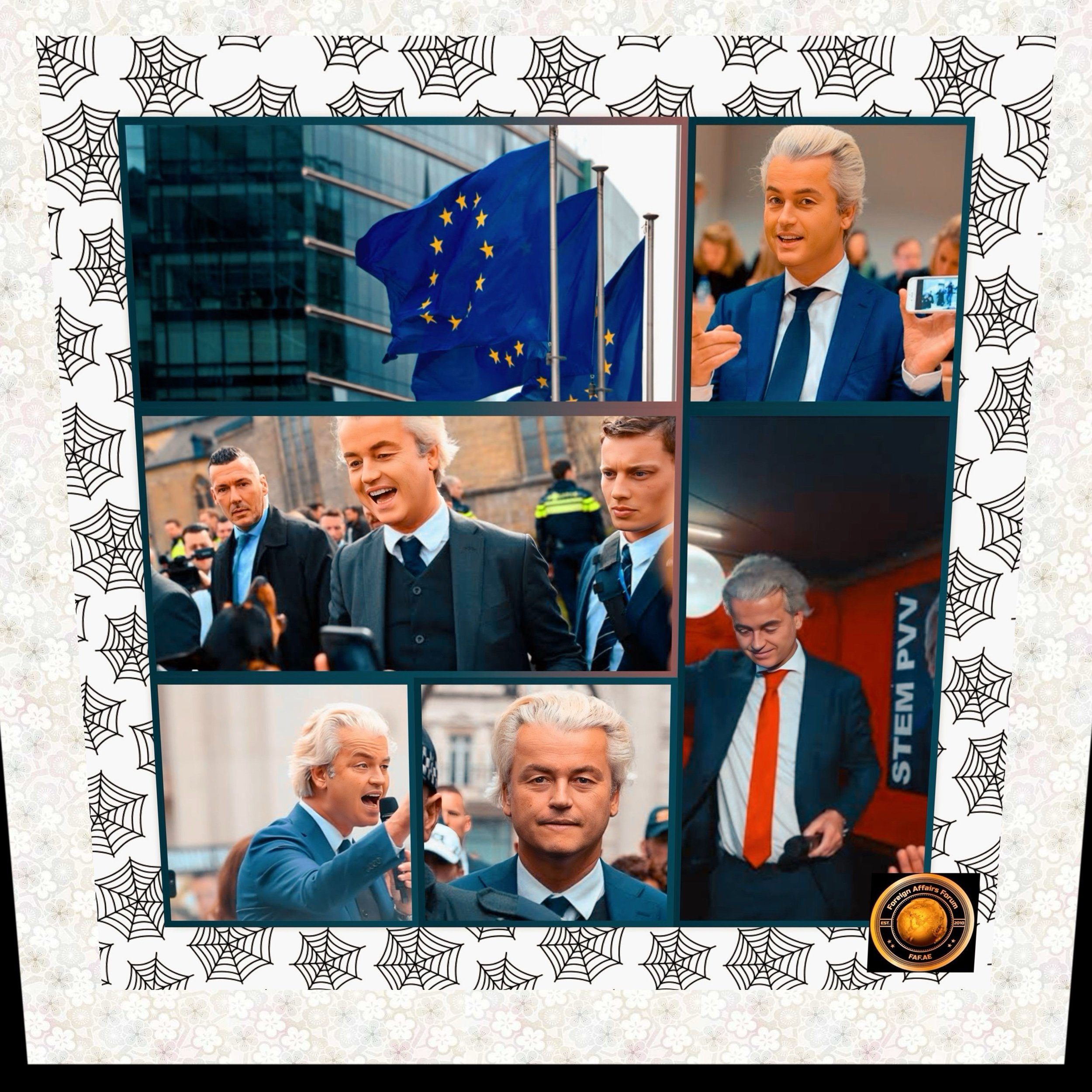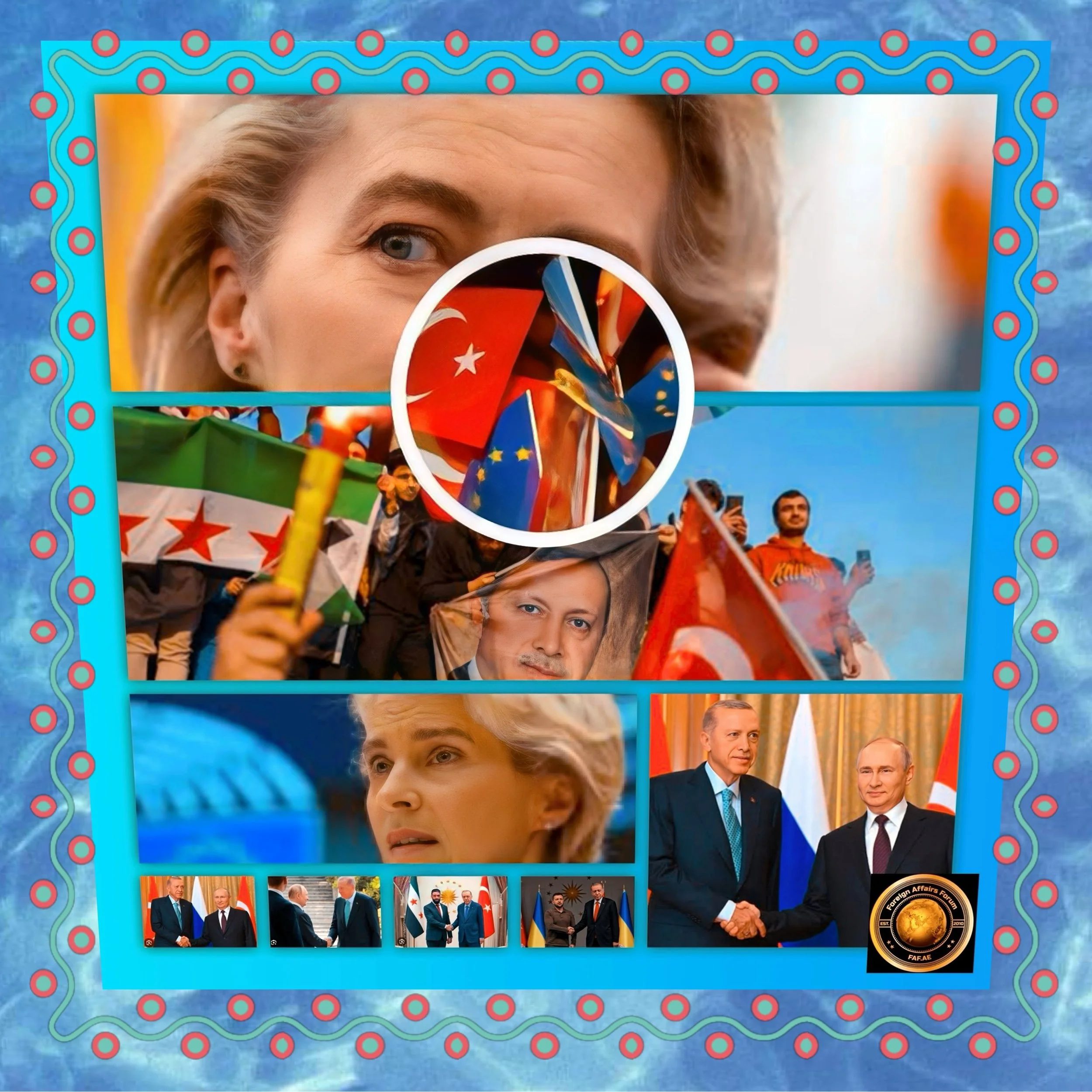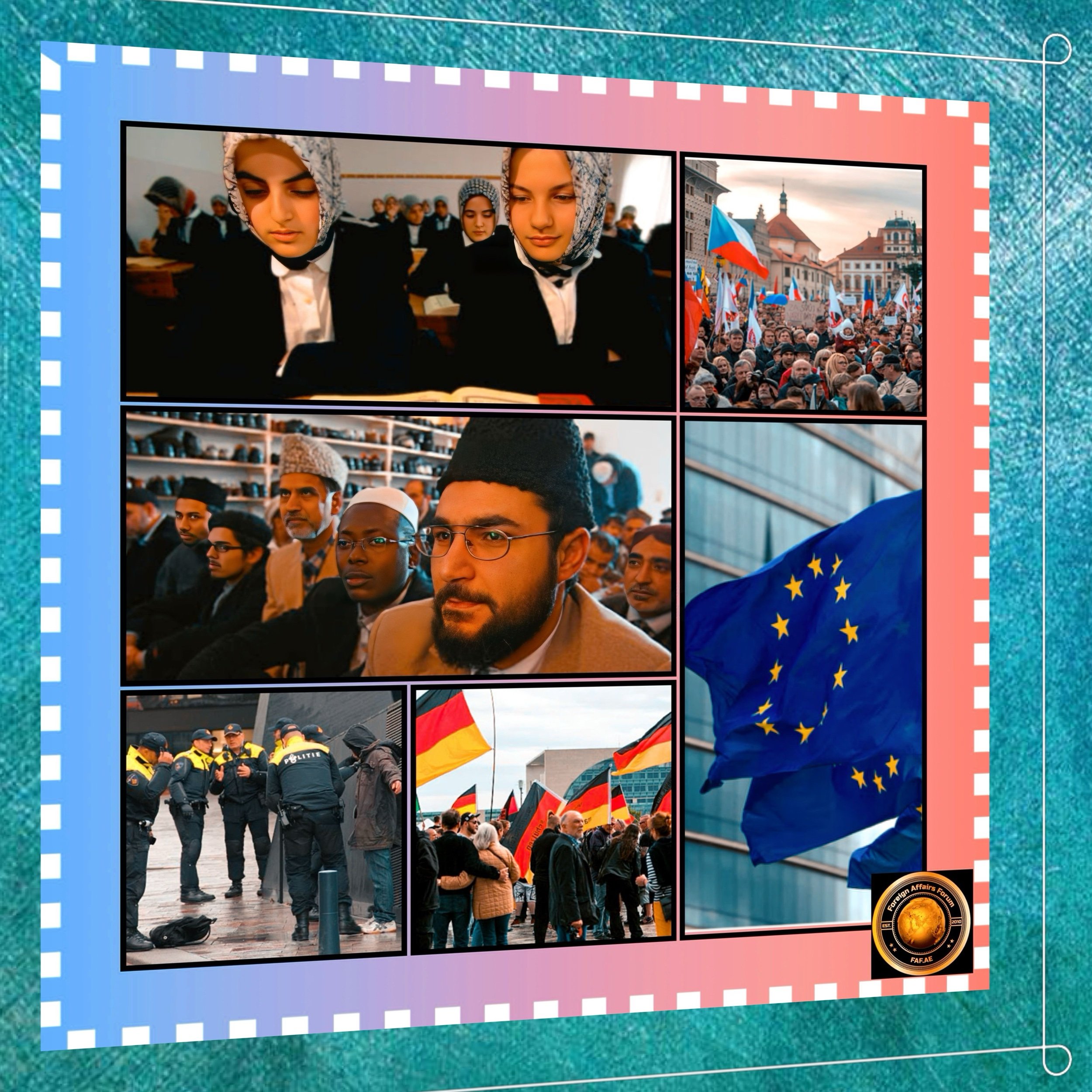Geert Wilders’ Anti-Islamic Stance: Bold Vision or Dangerous Rhetoric?
introduction
Geert Wilders, the Dutch politician who founded and leads the Party for Freedom (PVV), has become one of Europe’s most controversial political figures due to his strident views on Islam.
After his party’s electoral victory in November 2023, his anti-Islamic rhetoric has gained increased prominence in European political discourse.
While Wilders frames Islamic influence as an existential threat to European values and security, critics view his positions as dangerously inflammatory and counterproductive.
FAF analysis examines whether Wilders’ stance that Islam represents Europe’s greatest threat can be considered a bold political stance or an unreasonable position.
Wilders’ Rejection of the Islam-Islamism Distinction
A critical element in understanding Wilders’ perspective is his explicit rejection of the common distinction between Islam as a religion and Islamism as a political ideology. While many politicians and scholars differentiate between moderate Islam and extremist Islamism, Wilders fundamentally opposes this separation.
“The word ‘Islamism’ suggests that there is a moderate Islam and a non-moderate Islam,” Wilders stated in an interview. “And I believe that this is a distinction that doesn’t exist.
It’s like the Prime Minister of Turkey Recep Tayyip Erdogan, said ‘There is no moderate or immoderate Islam. Islam is Islam, and that’s it.’”
This rejection forms the foundation of Wilders’ worldview. He argues that while there may be moderate Muslims, there is no moderate version of Islam itself.
He describes Islam not as a religion but as “a totalitarian ideology” comparable to National Socialism. This characterization allows him to frame his opposition not as religious intolerance but as resistance to what he perceives as a threatening political system.
Wilders’ Controversial Policy Proposals
Based on his characterization of Islam, Wilders has advocated for policies that many consider extreme. His Party for Freedom’s manifesto begins with a plan to “de-Islamize” the Netherlands. His proposed measures have include
Banning the Quran, which he has compared to Hitler’s “Mein Kampf”
Closing mosques and Islamic schools
Implementing a “head rag tax” on women wearing hijabs
Banning immigration from Muslim-majority countries
Forbidding women from wearing headscarves in public
In 2008, Wilders produced a controversial short film called “Fitna,” which juxtaposes violent imagery with quotes from the Quran.
Regarding the film, he stated he hoped it showed that the “Qur’an is not some dusty old book, but that it is used today as a source of inspiration for, and justification of, hatred, violence and terrorism in the world, Europe and America.”
Arguments Supporting Wilders’ Position as “Bold”
Some view Wilders’ stance as a bold political position for several reasons:
Addressing Security Concerns
Western Europe has experienced terrorist attacks carried out by individuals claiming Islamic motivation. Wilders frames his position as a necessary response to these security threats.
The Netherlands, like other European countries, has grappled with the challenge of violent extremism, which Wilders uses to justify his hardline approach.
Standing Against Perceived Political Correctness
Supporters see Wilders as speaking uncomfortable truths that others avoid due to political correctness.
His willingness to make controversial statements despite threats to his safety—he has received death threats and requires constant police protection since 2004—is viewed by some as courageous.
Electoral Success
Wilders’ electoral success suggests his views resonate with a significant portion of Dutch voters. His party won a surprising victory in the November 2023 Dutch elections, indicating that concerns about immigration and Islam have political traction in the Netherlands.
Arguments Against Wilders’ Position as “Bonkers”
Critics consider Wilders’ stance dangerously misguided for numerous reasons
Rejection of Scholarly Consensus
Wilders’ rejection of the distinction between Islam and Islamism contradicts mainstream scholarly understanding.
Dr. Jan Ali, an Islamic studies expert, states that Wilders’ conceptualization of Islam is “pregnant with expedient rhetoric and pure falsity” and that he “essentially fails to recognize that Islam is a complete way of life. It is definitely not a monolithic system.”
Overgeneralization of a Diverse Religion
Islam encompasses approximately 1.8 billion followers worldwide with diverse interpretations and practices. Critics argue that Wilders’ characterization of Islam as a monolithic threat represents a gross overgeneralization that ignores this diversity.
Dr. Ali explains: “Muslims practice their Islam in a variety of ways that is very much dictated by their cultural context, and ethnic and parochial tradition.” By failing to acknowledge this diversity, Wilders’ rhetoric appears to target all Muslims rather than focusing on extremist elements.
Constitutional and Human Rights Concerns
Many of Wilders’ proposed policies would directly conflict with the Dutch constitution, fundamental human rights principles, and European human rights conventions. His proposals to ban religious texts and practices contradict core principles of religious freedom enshrined in Western democratic systems.
Economic and Diplomatic Consequences
Business leaders have expressed concern about the economic impact of Wilders’ rhetoric. Bernard Wientjes, president of the Dutch employers’ organization, accused Wilders of “seriously” damaging Dutch interests abroad, emphasizing that “three-quarters of the Dutch GDP comes from revenue earned abroad.” He characterized Wilders as “a serious threat to the Netherlands and the Dutch economy.”
Impact and Reactions to Wilders’ Views
Wilders’ positions have provoked strong reactions both domestically and internationally:
Legal Challenges
Wilders has faced legal challenges related to his statements about Muslims. In 2016, he was found guilty on discrimination charges following controversial comments asking supporters whether they wanted “fewer or more Moroccans in your city and the Netherlands.”
Political Reactions
Dutch political figures have condemned Wilders’ rhetoric. Former Prime Minister Jan-Peter Balkenende called Wilders’ comments “irresponsible,” while former Foreign Affairs Minister Maxime Verhagen stated that “He incites discord among people in a distasteful manner. And in the meantime he damages the interests of the Dutch population and the reputation of the Netherlands in the world.”
International Networks
Wilders has worked to build international connections with like-minded politicians, particularly in the United States. He has spoken at events in Tennessee and New York, warning American audiences about what he perceives as the threat of Islam. This suggests an effort to build a transnational movement based on anti-Islamic sentiment.
Personal Security Concerns
Since 2004, Wilders has required constant police protection due to threats against his life. In 2019, a Pakistani man was sentenced to 10 years in prison for attempting to kill Wilders, while in 2023, a Pakistani ex-cricketer received a 12-year sentence for inciting murder against him.
Conclusion
Bold or Bonkers?
The question of whether Wilders’ position that Islam represents Europe’s greatest threat is “bold” or “bonkers” ultimately depends on one’s perspective on several key issues: the nature of Islam itself, the relationship between religious texts and believers’ actions, the proper boundaries of free speech, and the balance between security concerns and religious freedom.
What seems clear from the evidence is that Wilders’ position represents an extreme end of the political spectrum regarding Islam in Europe.
His refusal to distinguish between Islam and Islamism, his characterization of Islam as inherently totalitarian, and his proposals for restricting Islamic practices go far beyond mainstream political discourse on managing religious diversity and security concerns.
While legitimate debates exist about integration, security, and the relationship between religion and politics in democratic societies, Wilders’ comprehensive rejection of Islam as compatible with Western values lacks the nuance necessary for constructive policymaking in diverse societies.
His rhetoric may resonate with voters concerned about cultural and demographic changes, but his proposed solutions would face significant legal, practical, and ethical challenges if implemented.
In a complex, globalized world, approaches that recognize diversity within religious traditions and focus on specific problematic behaviors rather than broadly targeting entire faith communities are more likely to foster both security and social cohesion.
By this measure, Wilders’ position appears less “bold” than historically reminiscent of other movements that have sought to define complex societies through simplistic divisions of “us” versus “them.”






